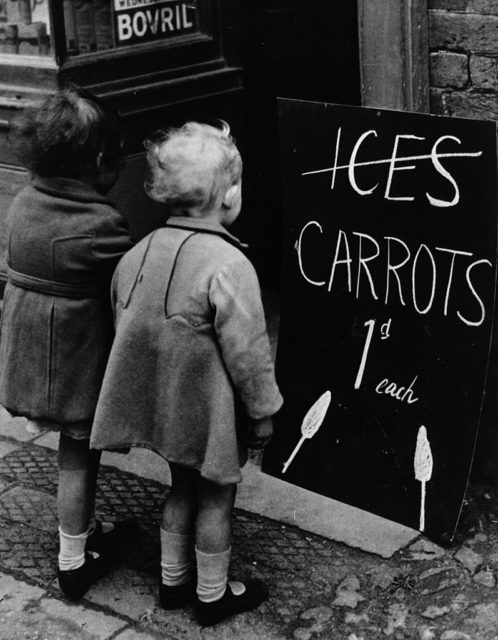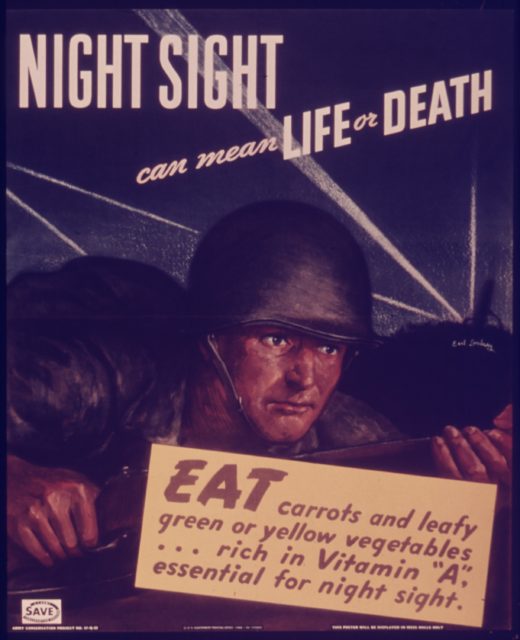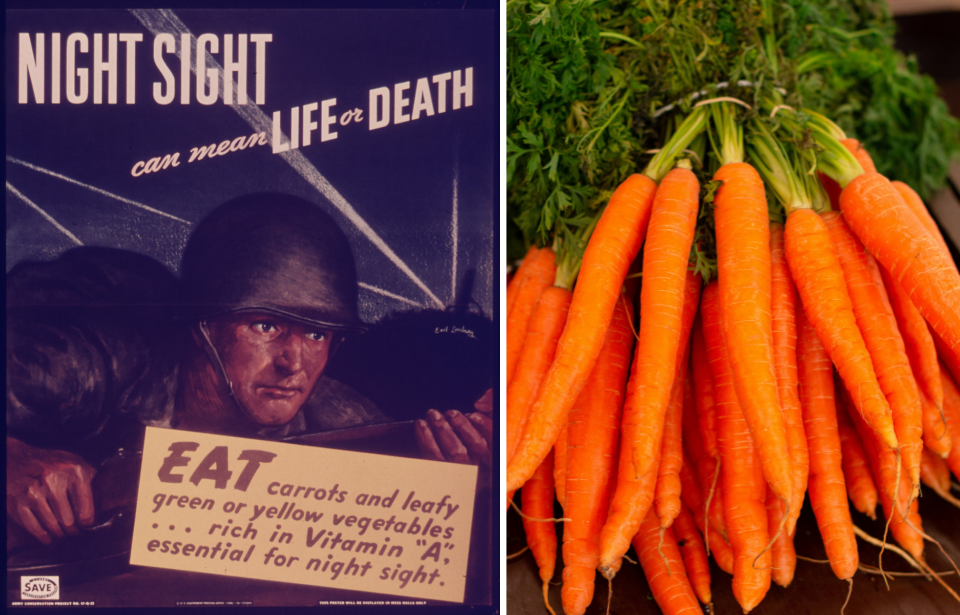When I was younger, my parents always told me that carrots would give me better eyesight. Much to their surprise, even though I ate the vegetable every day, I still needed glasses. Although carrots are full of Vitamin A, which is good for eye health, they cannot improve night-time vision. There’s no science to back up this notion, and what many people don’t know is that this carrot-themed myth traces its origins back to a WWII-era propaganda campaign.
Covering up a hidden technology

During the Blitz and Battle of Britain, the Luftwaffe often launched attacks at night. To make it more difficult for the Germans to hit their targets, the British government issued citywide blackouts. This meant the Luftwaffe and Royal Air Force (RAF) fought above the United Kingdom cities in complete darkness.
In 1939, the RAF first used a secret technology called the onboard Airborne Interception radar (AI), which eventually help the service’s pilots repel the German fighters in 1940. AI could pinpoint the location of enemy bombers before they’d reached the English Channel.
On November 19, 1940, RAF night fighter John “Cat’s Eyes” Cunningham was the first pilot to shoot down an enemy aircraft using AI. The air ace would go on to record 20 aerial victories during the Second World War, 19 of which occurred at night.
Carrots were the subject of a WWII-era propaganda campaign

After John Cunningham’s success with AI, the British government launched its own propaganda campaign, with carrots being the focal point. The Ministry of Information (MOI) told newspapers that pilots like Cunningham were so successful because they ate an excess of carrots.
Pictures of the air ace were published with captions that claimed he had the night vision of a cat. He was presented as a superhero who got his powers from eating lots of carrots. The vegetables gave him an ample amount of Vitamin A, which helped him shoot down Luftwaffe bombers in the dark.
A message to the Germans

This WWII-era propaganda campaign most definitely encouraged young pilots everywhere to eat more carrots. However, the real target wasn’t the British military, but, instead, the Germans.
There’s no evidence as to whether or not the enemy fell for this propaganda campaign. After all, at no point during the Second World War did Germany start targeting British carrot gardens during their bombing campaigns.
There are no official German publications about carrots, but it was believed that they fell for some of the false information being spread. According to John Stolarczyk, curator of the World Carrot Museum, “There are apocryphal takes that the Germans started feeding their own pilots carrots, as they thought there was some truth in it.”
The British public as a whole definitely bought into the campaign. They believed eating carrots would help them see better during blackouts. The Food Ministry took the craze a step further and promoted the vegetable as an alternative to fruit in cakes and tarts because of their natural sweetness. They were even stuck onto sticks and given to children, instead of ice cream and lollipops.
More from us: Academy Award-Winning Actor David Niven Had to Fight to Serve In WWII
The Germans eventually developed their own onboard radar, similar to the RAF’s AI. Despite the fact carrots improving eyesight was purely a propaganda campaign created by the British to hide their new radar technology, people continue to eat carrots today, hoping their eyesight will improve.
